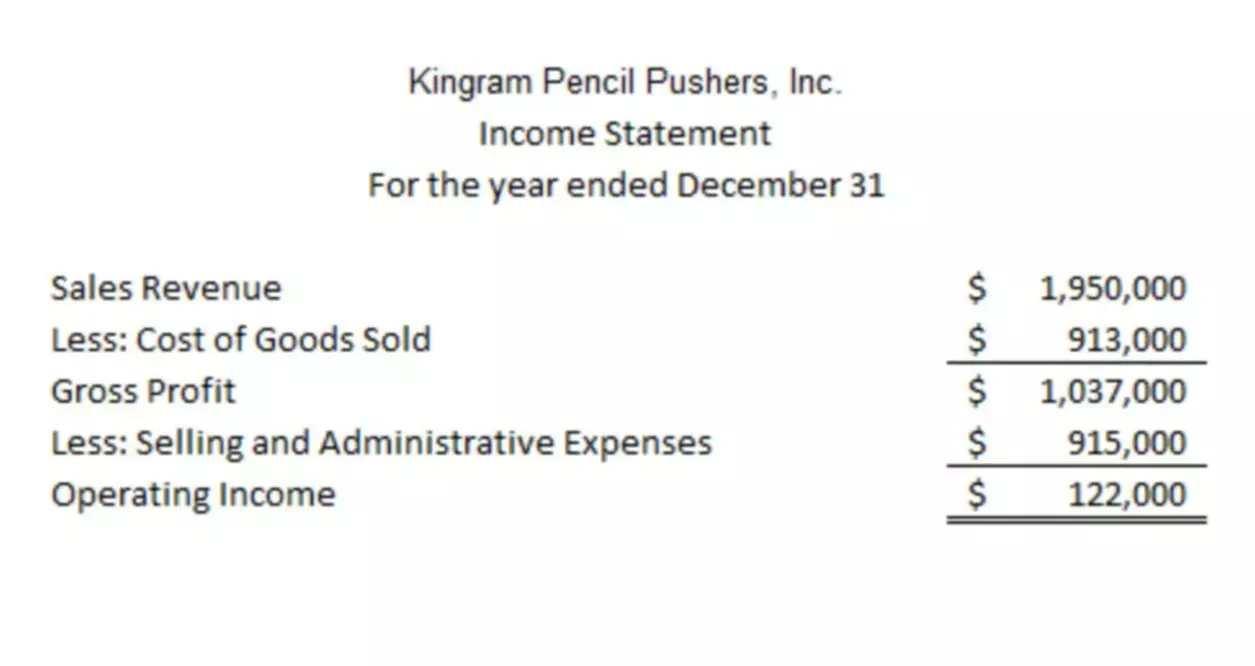Content
- What is the The Statement of Stockholders Equity?
- Why is a statement of shareholder equity important?
- What Is Included in Stockholders’ Equity?
- Appendix — Presentation Options for Disclosures About Changes in Stockholders’ Equity
- Shareholder Voting Rights
- Disadvantages of a Business Going Public
- Statement of Owner’s Equity in Small and Mid Size Firms

In the above example we see that the payment of cash dividends of $10,000 had an unfavorable effect on the corporation’s cash balance. This is also true of the $20,000 of cash that was used to repay short-term debt and to purchase treasury stock for $2,000. On the other hand, the borrowing of $60,000 had a favorable or positive effect on the corporation’s cash balance. The net result of the four financing activities caused cash and cash equivalents to increase by $28,000.
- An unrealized gain is when an investment has raised in value since the acquisition, and an unrealized loss is when it has instead reduced in value.
- Bob started off his business with nothing in capital or retained earnings in the company.
- This is due to the fact that they may not even realize that the shares they own are not entitled to receive dividends until the higher value or higher priority shares have been paid dividends.
- Retained earnings are defined as the net income that is earned by the business that has not been paid out to shareholders in the form of dividends.
Additionally if the business were to buy treasury stock at a low price and then ideally sell it again at a higher price the differential between the cost of the stock and its selling price is not recorded as a gain. Instead this differential is recorded as an increase in the additional paid-in capital. The retained earnings account on the balance sheet is said to represent an “accumulation of earnings” since net profits and losses are added/subtracted from the account from period to period. Stockholders’ equity, also referred to as shareholders’ or owners’ equity, is the remaining amount of assets available to shareholders after all liabilities have been paid. It is calculated either as a firm’s total assets less its total liabilities or alternatively as the sum of share capital and retained earnings less treasury shares. Stockholders’ equity might include common stock, paid-in capital, retained earnings, and treasury stock.
What is the The Statement of Stockholders Equity?
The statement of shareholders’ equity is a financial document a company issues as part of its balance sheet. It highlights the changes in value to stockholders’ or shareholders’ equity, or ownership interest in a company, from the beginning of a given accounting period to the end of that period. Typically, the statement of shareholders’ equity measures changes from the beginning of the year through the end of the year.
- Note that the $95,000 appears as a negative amount because the outflow of cash for capital expenditures has an unfavorable or negative effect on the corporation’s cash balance.
- It also helps to find out if the company has gone over its assets without accumulating enough earnings.
- Some people also subtract the corporation’s cash dividends when the dividends are viewed as a necessity.
- Treasury Stock which represents the value of shares repurchased by the company.
- Statement of Shareholders’ Equity is used to calculate the company’s book value per share.
- Over 80 years ago oil prospectors also known as wildcatter’s named Bill and Steve gathered up all of their savings and purchased a piece of land in Texas.
As used in this document, “Deloitte” means Deloitte & Touche LLP, a subsidiary of Deloitte LLP. Please see /us/about for a detailed description of our legal structure. Certain services may not be available to attest clients under the rules and regulations of public accounting. Human errors occur in any job and any sector, but lucky for us there is always a solution.
Why is a statement of shareholder equity important?
This is a special type of stock, or ownership stake in a company, that offers holders a higher claim on a company’s earnings and assets than those who own the company’s common stock. Preferred stockholders will typically be entitled https://www.bookstime.com/ to dividends before holders of common stock can receive theirs. Preferred stock is usually listed on the statement of shareholders’ equity at par value, or face value, which is the amount at which it is issued or redeemable.
- For example, if the business decides to liquidate, preferred stockholders will get paid before common stockholders do.
- A company that’s been profitable for quite some time will probably show a large amount of retained earnings.
- With various debt and equity instruments in mind, we can apply this knowledge to our own personal investment decisions.
- The number of shares authorized is the number of shares that the corporation is allowed to issue according to the company’s articles of incorporation.
- Finally, the number of shares outstanding refers to shares that are owned only by outside investors, while shares owned by the issuing corporation are called treasury shares.
There are some businesses that offer more than one type of ownership share and some of these can be more valuable than others. Other businesses will sometimes offer their employees stock in the business at a discounted price therefore watering down or “diluting” the existing stockholders shares and their value. Often times many investors will ignore this information at their own expense. This is due to the fact that they may not even realize that the shares they own are not entitled to receive dividends until the higher value or higher priority shares have been paid dividends.
What Is Included in Stockholders’ Equity?
When a company generates net income, or profits, and holds on to it rather than pay it out as dividends to shareholders, it’s recorded as retained earnings, which increase stockholders’ equity. For example, if a company reports $10,000,000 in net profits for the quarter and pays $2,000,000 in dividends, it increases stockholders’ equity by $8,000,000 through the retained earnings account. If a company reports a loss of net income for the quarter, it will reduce stockholders’ equity. statement of stockholders equity Initially, at a corporation’s foundation, the amount of stockholders’ equity reflects how much co-owners or investors have contributed to the company in form of direct investments. The capital invested enables a company to operate as it acquires assets, hires personnel, and creates operations to market, produce, and distribute its products or services. Investors hope their equity contributions can be paid back to them through dividends and/or increase in shareholder value.
Does revenue increase stockholders equity?
Generally, when a corporation earns revenue there is an increase in current assets (cash or accounts receivable) and an increase in the retained earnings component of stockholders' equity .
Pricing will vary based on various factors, including, but not limited to, the customer’s location, package chosen, added features and equipment, the purchaser’s credit score, etc. For the most accurate information, please ask your customer service representative. Clarify all fees and contract details before signing a contract or finalizing your purchase. Each individual’s unique needs should be considered when deciding on chosen products. It is used by partnerships with only a couple of employees to large corporations. You should consider our materials to be an introduction to selected accounting and bookkeeping topics, and realize that some complexities are not presented. Therefore, always consult with accounting and tax professionals for assistance with your specific circumstances.
Appendix — Presentation Options for Disclosures About Changes in Stockholders’ Equity
Now that Jack was a full partner Bill and Steve had reduced any profits that they might receive. The way that a business divides up its ownership shares is very important.
What items appear on the statement of stockholders equity?
Four components that are included in the shareholders' equity calculation are outstanding shares, additional paid-in capital, retained earnings, and treasury stock. If shareholders' equity is positive, a company has enough assets to pay its liabilities; if it's negative, a company's liabilities surpass its assets.
This can be thought of like compound interest, and over time the number of shares you own will increase. The stock dividends can also be thought of as much smaller increases that are proportional to the number of shares outstanding.
Discover what an open source accounting software is, its benefits, its features, and a comparison of the best open source accounting software. Employee leave management platforms are becoming essential in companies. Discover our comparison of the best employee leave management platforms to facilitate your daily HR management.

Full BioCierra Murry is an expert in banking, credit cards, investing, loans, mortgages, and real estate. She is a banking consultant, loan signing agent, and arbitrator with more than 15 years of experience in financial analysis, underwriting, loan documentation, loan review, banking compliance, and credit risk management. Adam Hayes, Ph.D., CFA, is a financial writer with 15+ years Wall Street experience as a derivatives trader. Besides his extensive derivative trading expertise, Adam is an expert in economics and behavioral finance. Adam received his master’s in economics from The New School for Social Research and his Ph.D. from the University of Wisconsin-Madison in sociology. He is a CFA charterholder as well as holding FINRA Series 7, 55 & 63 licenses.
It appears as the owner’s or shareholders’ equity on the corporate balance sheet’s liability side. For any of the financial statements to be accurate it is necessary to have a proper cut-off.
If stockholder equity declines from one accounting period to the next, it’s a telltale sign that the business owner is doing something wrong. These represent the accumulated company’s profits that are not paid out as dividends to the shareholders and instead allocated back into the business.